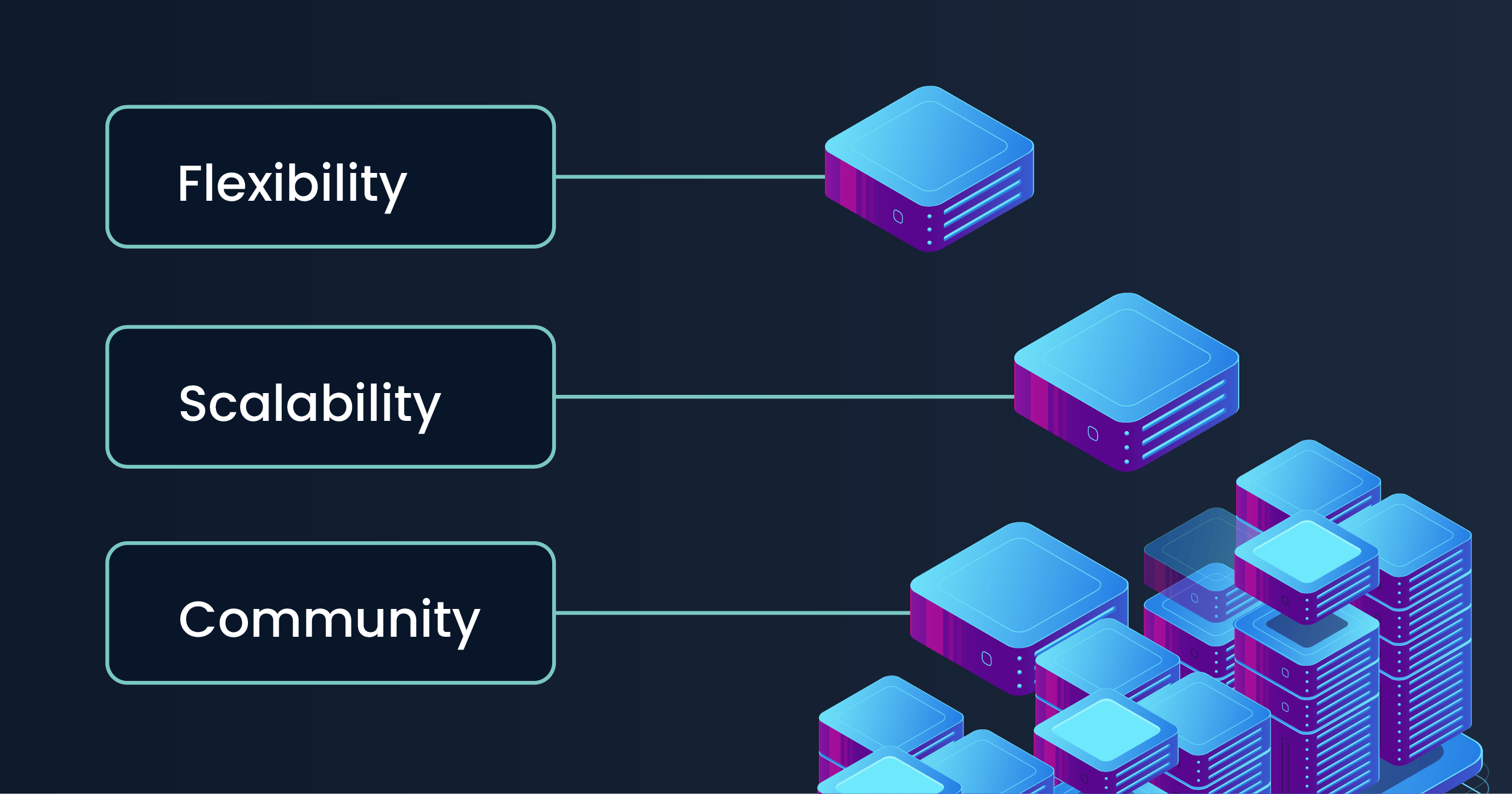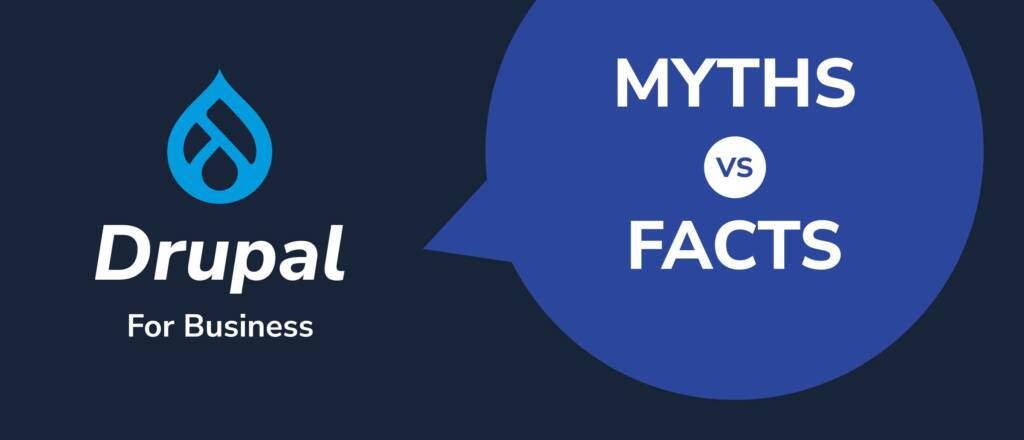

Why Should a Business Use Drupal?
The Drupal CMS embodies power and adaptability, offering power for businesses seeking to conquer the digital realm. In today’s complex digital landscape, businesses must find a Content Management System (CMS) for digital challenges.
Drupal emerges as the shining knight among the contenders, ready to fulfill your business's unique needs and ambitions. With its modular architecture, unrivaled flexibility, and vibrant community, Drupal is the ultimate choice for businesses needing a powerful B2B CMS solution.
Many high-traffic and reputable websites rely on Drupal for their content management needs. Some notable Drupal website examples include:
- Nokia (nokia.com)
- Oxford University (ox.ac.uk)
- Warner Music Group (warnermusic.com)
- Pfizer (pfizer.com)
- Tesla (tesla.com)
These companies and organizations with expansive audiences rely on Drupal for its scalability, application integration, and secure infrastructure.
How Drupal's Modular Architecture Benefits a Business

The core functionality of Drupal is organized into separate modules, each serving a specific purpose or feature.
These modules can be enabled based on the needs of the website or application. This allows for several system design and structure alterations, offering businesses numerous benefits.
It Provides Flexibility and Customization
Website administrators can choose which modules to enable based on the specific requirements of their site. This flexibility enables businesses to build tailored web solutions that meet their unique needs without unnecessary bloat.
It Promotes Scalability
New modules can be added to enhance functionality or meet evolving needs, ensuring that the CMS scale and adapt as the business expands. Conversely, no longer necessary modules can be disabled or removed, streamlining the system.
It Facilitates A Vibrant Community-Driven Ecosystem
Drupal's open-source architecture encourages developers to contribute new modules, themes, and functionality to the community. This continuous development and collaboration ensure that Drupal remains up-to-date with emerging technologies and industry best practices.
Common Drupal Modules for Business Websites
Drupal's extensive module ecosystem offers options to extend functionality and customize websites according to specific business needs. Here are five examples of Drupal modules for business websites.
Views
Views are one of the most popular modules in Drupal. It allows site administrators to create dynamic and customizable lists, grids, tables, and other displays of content. With Views, businesses can easily create and manage complex data presentations, such as product listings, event calendars, user directories, and more.
Token
The Token module provides a simple way to use dynamic data within Drupal. It enables the substitution of placeholders (tokens) with actual values in various contexts, such as content, titles, paths, emails, and more. This module is useful for businesses working with personalized information, such as user names, site URLs, or custom data.
Webform
The Webform module enables the creation and management of forms within Drupal. It uses a drag-and-drop interface to build customizable forms, including contact forms, surveys, lead capture forms, and more. With Webform, businesses can collect and process user data, manage submissions, and integrate forms with other systems or email marketing platforms.
Paragraphs
The Paragraphs module provides a flexible way to structure and manage Drupal content. It allows site builders to define and reuse predefined paragraph and section types. Businesses can leverage Paragraphs to create modular and visually appealing page layouts with different content elements, such as text blocks, images, videos, sliders, testimonials, and more.
Pathauto
The Pathauto module automatically generates user-friendly URLs (also known as "clean URLs" or "friendly URLs") based on content titles. It eliminates the need for manually setting URLs for each page or content item. This module helps businesses improve SEO by creating descriptive and readable URLs that are easier for visitors and search engines to understand.
Advantages of Drupal for Businesses
Drupal handles complex projects effectively and offers the following advantages for your business.
Security and Reliability
Businesses prioritize trust and security when choosing and maintaining their CMS platform. Drupal's focus on security makes it a trusted choice for businesses. Regular security updates and a dedicated security team ensure that Drupal remains secure against potential vulnerabilities. With granular user permissions, secure coding practices, and secure file handling, Drupal safeguards your valuable data and customer information.
Keep your Drupal installation and modules up-to-date to benefit from the latest security patches. Regularly review and adjust user permissions to ensure proper access controls and minimize the risk of data breaches.
Flexibility and Scalability
Drupal's modular architecture allows businesses to customize and extend its functionality according to their specific needs. Drupal offers unparalleled flexibility, from designing and structuring content types to defining workflows and user permissions. The adaptability allows you to tailor your online business presence and create unique digital experiences.
Engage experienced Drupal developers to leverage the full potential of Drupal's flexibility and scalability. They can help you build customized solutions that align with your business goals.
Robust Content Management Features
Managing large amounts of content can be a daunting task for you. Drupal offers businesses powerful tools and features to handle this challenge efficiently. Content creation and editing become effortless with Drupal's intuitive interface. Versioning and revision control simplifies collaboration and tracking changes. Advanced content management features, such as taxonomies (classifications), tagging, and content categorization, ensure content is organized and accessible.
Take advantage of Drupal's content management features by organizing your content strategically. Utilize taxonomies, tags, and categorization to enhance content discoverability and improve user experience.
Community Support and Active Development
Drupal boasts a vibrant and supportive community of developers and contributors. This community-driven ecosystem ensures that Drupal stays up-to-date with emerging technologies and best practices. Regular updates and enhancements keep you at the forefront of CMS innovation. Businesses can leverage a vast array of community-contributed modules and themes, extending Drupal's functionality and unlocking limitless possibilities.
Engage with Drupal’s extensive community of forums, events, and online groups. Share your challenges and ideas, and tap into the collective knowledge and experience of the community to enhance your Drupal projects.
SEO-Friendliness
In the quest for online visibility, Drupal excels with its SEO-friendly features. Its architecture and built-in SEO modules support organic search strategies. Clean URLs, customizable meta tags, and XML sitemap generation enhance search engine visibility. Drupal empowers businesses to improve their organic search rankings, drive increased website traffic, and attract a wider audience.
Conduct keyword research and optimize your Drupal website by utilizing relevant keywords in page titles, headings, and content. Leverage Drupal's SEO modules to further enhance your website's search engine visibility.
Integration With Various Third-Party Tools and Services
Integrations with third-party systems and tools streamline business operations and enhance productivity. Drupal offers robust capabilities for integrating various CRM (Customer Relationship Management) systems and productivity tools like Google Workspace (formerly G Suite), Microsoft Office 365, Slack, and Asana. Other integrations can range from social media like (Facebook, Twitter) to analytics tools like Google Analytics and others.
When integrating third-party systems with Drupal, consider using well-documented and supported modules or APIs specifically built for seamless integration. These modules often provide pre-built connectors and configurations, saving you time and effort.
Multilingual and Internationalization Capabilities
Drupal proves to be an invaluable asset for businesses with a global reach. It offers robust multilingual features, enabling businesses to create content in multiple languages. Language detection, translation workflows, and localization tools simplify the management of translated content. Drupal facilitates seamless communication with diverse audiences worldwide, expanding business horizons and fostering international growth.
When creating multilingual content, ensure a consistent user experience across all languages. Implement language-switching options and optimize your website's performance to cater to a global audience effectively.
Drupal Myths and Facts

There are several myths and misconceptions surrounding Drupal. By dispelling these myths and understanding the facts, you can make informed decisions about whether Drupal is the right CMS for your specific needs.
Is Drupal Difficult to Learn and Use?
![]() While Drupal has a learning curve, it provides extensive documentation, tutorials, and a supportive community to help users navigate the platform. With proper guidance and resources, Drupal can be mastered by developers and content editors of varying skill levels.
While Drupal has a learning curve, it provides extensive documentation, tutorials, and a supportive community to help users navigate the platform. With proper guidance and resources, Drupal can be mastered by developers and content editors of varying skill levels.
Is Drupal Only Suitable For Large Enterprise Websites?
![]() While Drupal is indeed a popular choice for large enterprises needing scalable websites, it capably powers smaller websites and applications. Drupal's modular architecture allows businesses to tailor the CMS to their specific needs, regardless of their size or complexity.
While Drupal is indeed a popular choice for large enterprises needing scalable websites, it capably powers smaller websites and applications. Drupal's modular architecture allows businesses to tailor the CMS to their specific needs, regardless of their size or complexity.
Does Drupal Lack Design and Aesthetics?
![]() Drupal offers a wide range of themes and customizable design options. With the help of contributed themes or custom theme development, Drupal websites can be visually appealing and aligned with a business's branding requirements.
Drupal offers a wide range of themes and customizable design options. With the help of contributed themes or custom theme development, Drupal websites can be visually appealing and aligned with a business's branding requirements.
Is Drupal SEO-Friendly?
![]() On the contrary, Drupal provides several built-in SEO features and modules that enhance search engine visibility. Clean URLs, customizable meta tags, XML sitemap generation, and content categorization options contribute to Drupal's SEO-friendliness, helping websites rank well in organic search results.
On the contrary, Drupal provides several built-in SEO features and modules that enhance search engine visibility. Clean URLs, customizable meta tags, XML sitemap generation, and content categorization options contribute to Drupal's SEO-friendliness, helping websites rank well in organic search results.
Is Drupal Secure?
![]() Drupal has a strong focus on security and is actively maintained by a dedicated security team. Regular security updates and patches are released to address vulnerabilities promptly. Drupal's granular user permissions, secure coding practices, and secure file handling contribute to its robust security measures.
Drupal has a strong focus on security and is actively maintained by a dedicated security team. Regular security updates and patches are released to address vulnerabilities promptly. Drupal's granular user permissions, secure coding practices, and secure file handling contribute to its robust security measures.
Does Drupal Have Limited Module and Theme Options?
![]() Drupal has a thriving community that contributes thousands of modules and themes, extending the functionality and design possibilities of Drupal websites. From e-commerce and social media integration to complex workflow management, Drupal offers a broad array of contributed modules to meet diverse requirements.
Drupal has a thriving community that contributes thousands of modules and themes, extending the functionality and design possibilities of Drupal websites. From e-commerce and social media integration to complex workflow management, Drupal offers a broad array of contributed modules to meet diverse requirements.
Is Drupal Time-Consuming to Use?
![]() While Drupal may require some initial investment in learning and setup, its modular nature and extensive documentation facilitate efficient development. Once familiar with the CMS and its best practices, Drupal enables developers to build and maintain websites efficiently.
While Drupal may require some initial investment in learning and setup, its modular nature and extensive documentation facilitate efficient development. Once familiar with the CMS and its best practices, Drupal enables developers to build and maintain websites efficiently.
Does Drupal Lack Support And Documentation?
![]() Drupal has a large and supportive community of developers, contributors, and enthusiasts who actively provide assistance and guidance. The Drupal.org website offers comprehensive documentation, forums, and resources to help users troubleshoot issues and find answers to their questions.
Drupal has a large and supportive community of developers, contributors, and enthusiasts who actively provide assistance and guidance. The Drupal.org website offers comprehensive documentation, forums, and resources to help users troubleshoot issues and find answers to their questions.
Is Drupal Expensive?
![]() Drupal is an open-source CMS, which means it is free to use and doesn't require licensing fees. However, like any CMS, there may be costs associated with development, customization, hosting, and maintenance based on individual project requirements.
Drupal is an open-source CMS, which means it is free to use and doesn't require licensing fees. However, like any CMS, there may be costs associated with development, customization, hosting, and maintenance based on individual project requirements.
Is Drupal Suitable Only for Websites, and Not for Other Applications?
![]() While Drupal is widely used for building websites, its flexibility allows developers to build a range of applications including intranets, community platforms, business portals, e-learning systems, and more. Drupal's modular architecture and customizable features make it adaptable for various use cases.
While Drupal is widely used for building websites, its flexibility allows developers to build a range of applications including intranets, community platforms, business portals, e-learning systems, and more. Drupal's modular architecture and customizable features make it adaptable for various use cases.
Unleashing the Potential of Drupal: A Powerful B2B Solution
Selecting the right CMS is crucial for businesses aiming to establish a strong online presence. It determines the efficiency of your content management, and the scalability of your platform, and ultimately impacts the success of your business.
Drupal stands tall, offering a range of advantages that make it an exceptional CMS for businesses.




